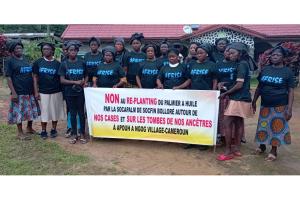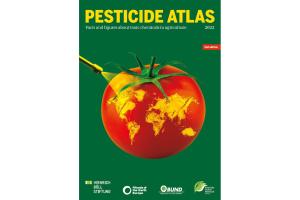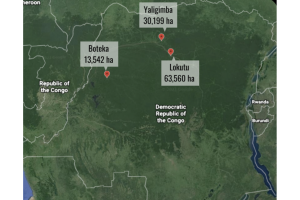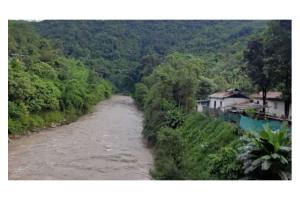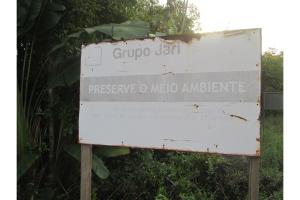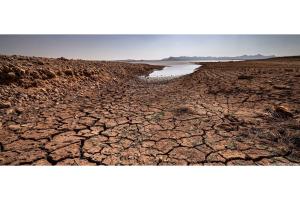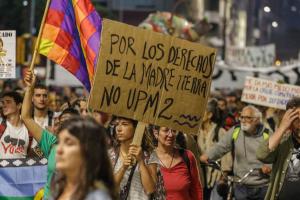For decades, Mapuche communities have been resisting the impacts of a forestry model based on large-scale monoculture plantations. In this interveiw, Pablo Reyes Huenchumán, spokesperson for the Paillakawe community, explains how they organize, and what the main challenges are in the struggle to recover their territory and maintain their culture.
Large-Scale Tree Plantations
Industrial tree plantations are large-scale, intensively managed, even-aged monocultures, involving vast areas of fertile land under the control of plantation companies. Management of plantations involves the use of huge amounts of water as well as agrochemicals—which harm humans, and plants and animals in the plantations and surrounding areas.
Bulletin articles
19 December 2023
Multimedia
19 December 2023
The Afrise women's association launched an international petition to stop the replanting of oil palm monocultures around their homes and over the grave sites of their ancestors. Here we share the testimony of the president of Afrise.
Other information
19 December 2023
The material presents a broad overview of the theme, with data on use and impacts of agrotoxins on agriculture, health and the economy, among others.
Action alerts
28 November 2023
Sign this petition against the replanting of oil palm by Socapalm (Socfin/ Bolloré) in the vicinity of the homes and tombs of the neighbouring village Apouh à Ngog, in Edea-Cameroon.
Action alerts
20 November 2023
Collective statement, 20 November 2023
Bulletin articles
25 October 2023
Land related struggles in India’s Northeast states might worsen with the push to expand oil palm plantations on small-farmers and Indigenous land, threatening their food sovereignty and the ancestral practice of Jhum (shifting cultivation). On top of this, a new Forest Amendment Law will facilitate this expansion, jeopardizing further the region’s forests and Indigenous Peoples.
Bulletin articles
25 October 2023
WRM’s reply to Biofílica Ambipar’s “Clarification Note” about the article "REDD and the Green Economy exacerbate oppression and deforestation in Pará, Brazil", written by WRM and published in its Bulletin of July 2023.
Bulletin articles
25 October 2023
More than seven percent of Uruguay's territory is covered with monoculture tree plantations. A handful of companies have been behind this massive expansion—which has occurred mostly over watersheds and prairies—,with devastating consequences. This year, almost half of the urban population had no access to drinking water—an imminent warning of the drastic change that is needed for Uruguay to maintain its water.
Bulletin articles
25 October 2023
Exchanges between activists put the voices of those who fight to defend their territories at the center of the conversation. In September, members of communities from Brazil and Mozambique united their struggles and connected their histories once again, helping to strengthen solidarity in the fight against industrial tree plantations.
Other information
25 October 2023
The network released an open letter in which it denounces the impacts of the plantations and the crimes committed by the companies. At the same time, they demand reparation and reaffirm resistance against tree monocultures.
Other information
25 October 2023
One of the pulp plants of the Finnish company UPM spilled one million liters of caustic soda into the Sauce stream, a tributary of the Negro River, in Uruguay.
Other information
25 October 2023
The video "Uganda: Resisting Industrial Oil Palm Plantations" is now available in Bahasa Indonesian. It highlights the resistance of communities in Buvuma Island, in Uganda, where the Bidco company (partially owned by the transnational Wilmar company) is trying to expand its oil palm plantations.

